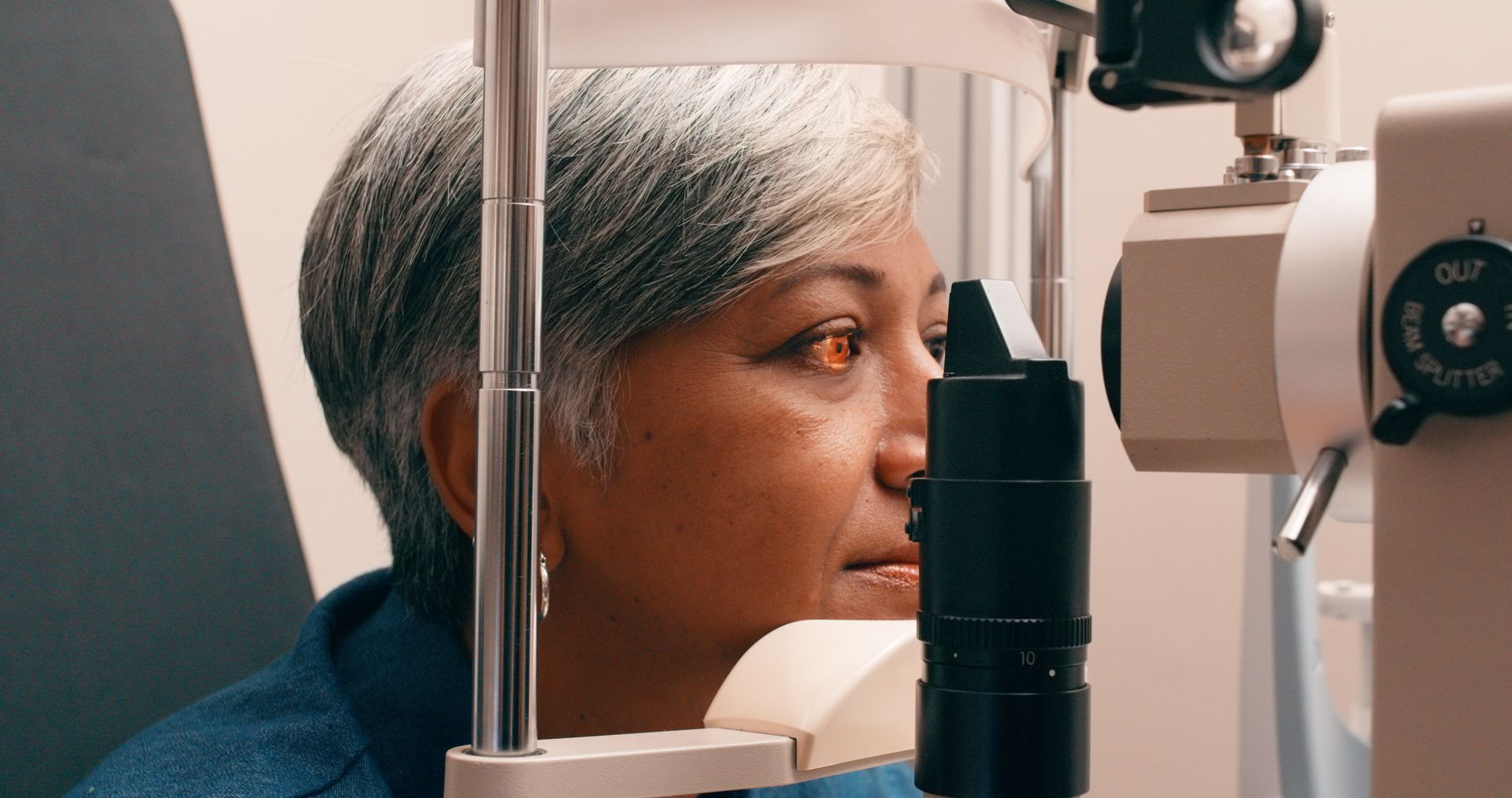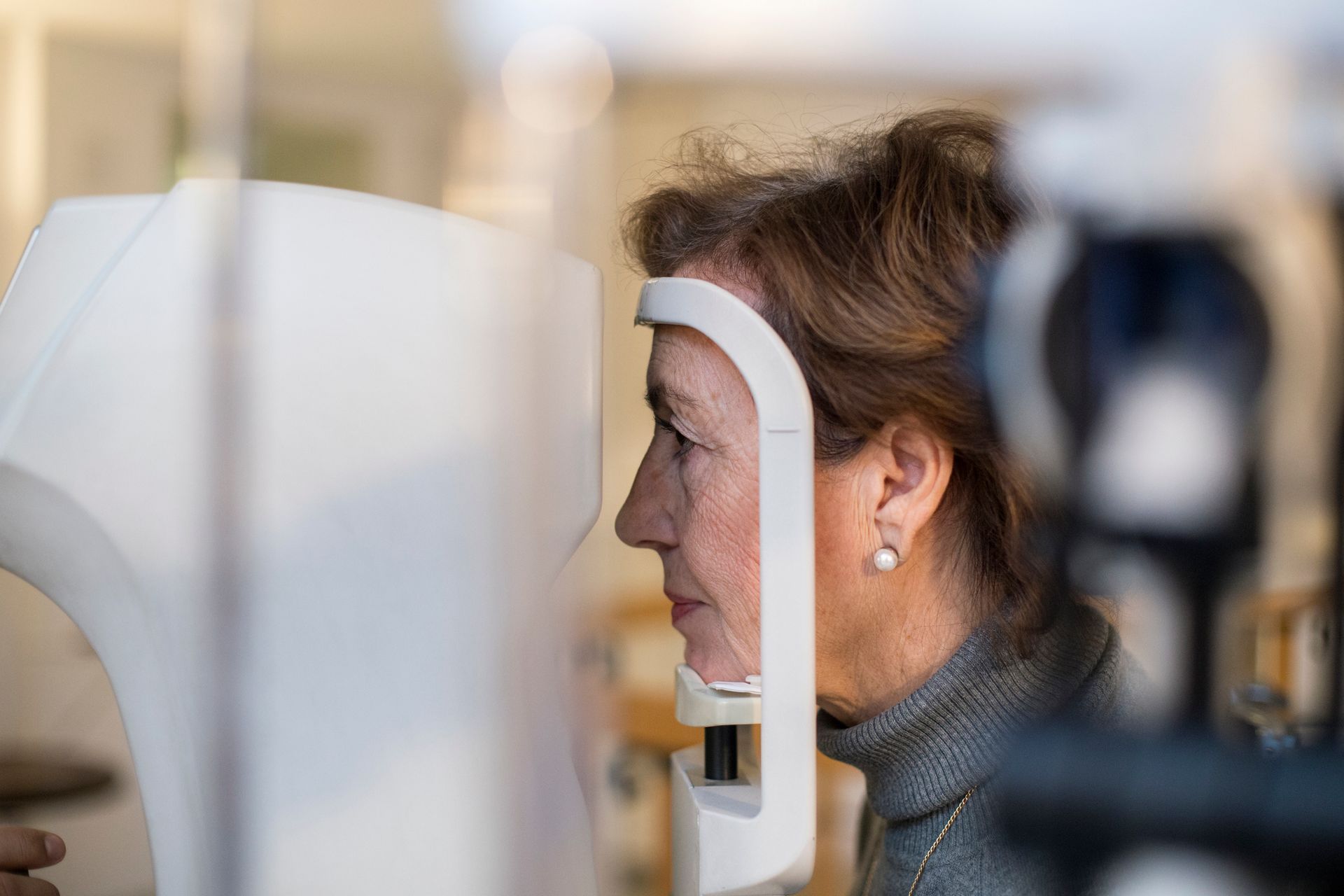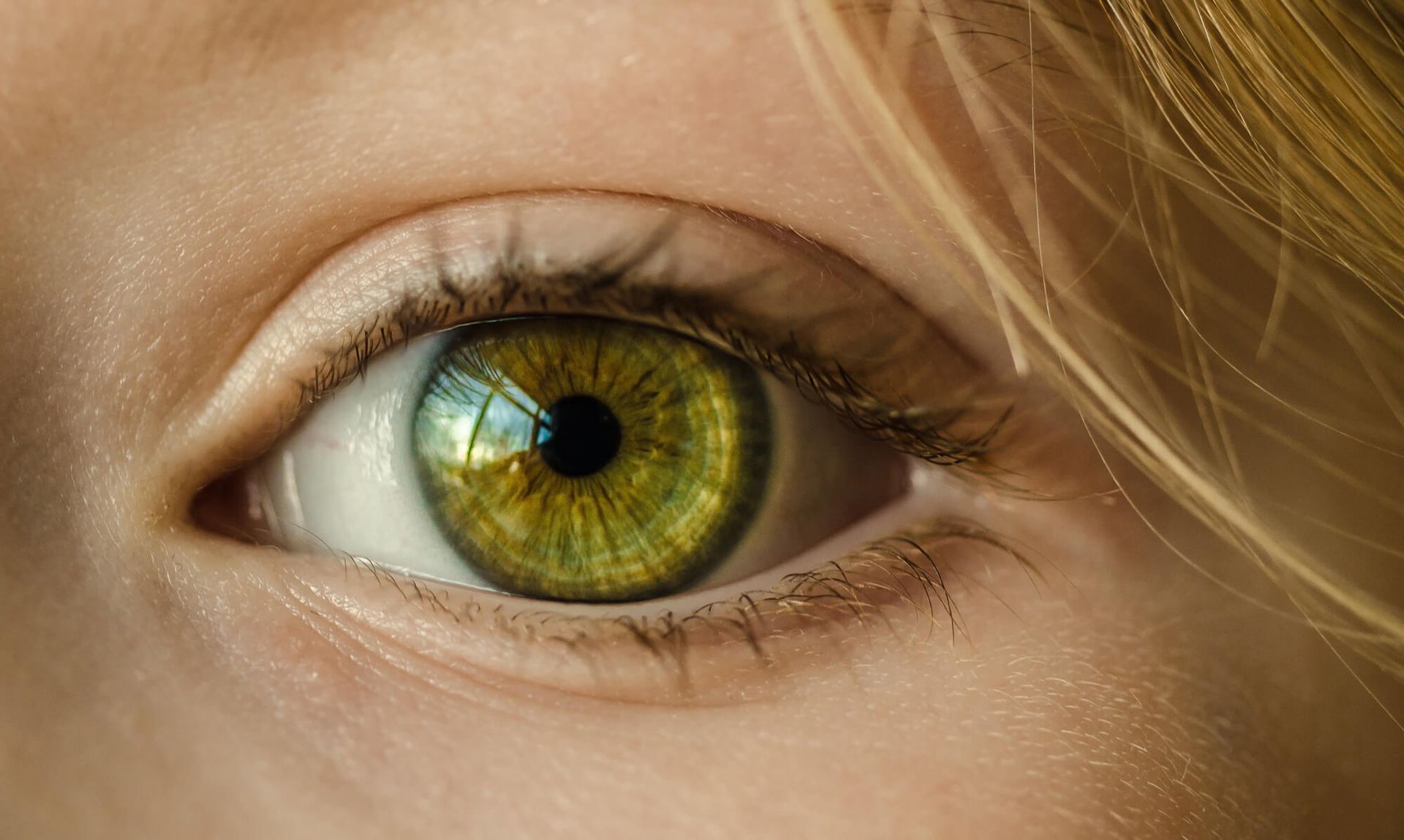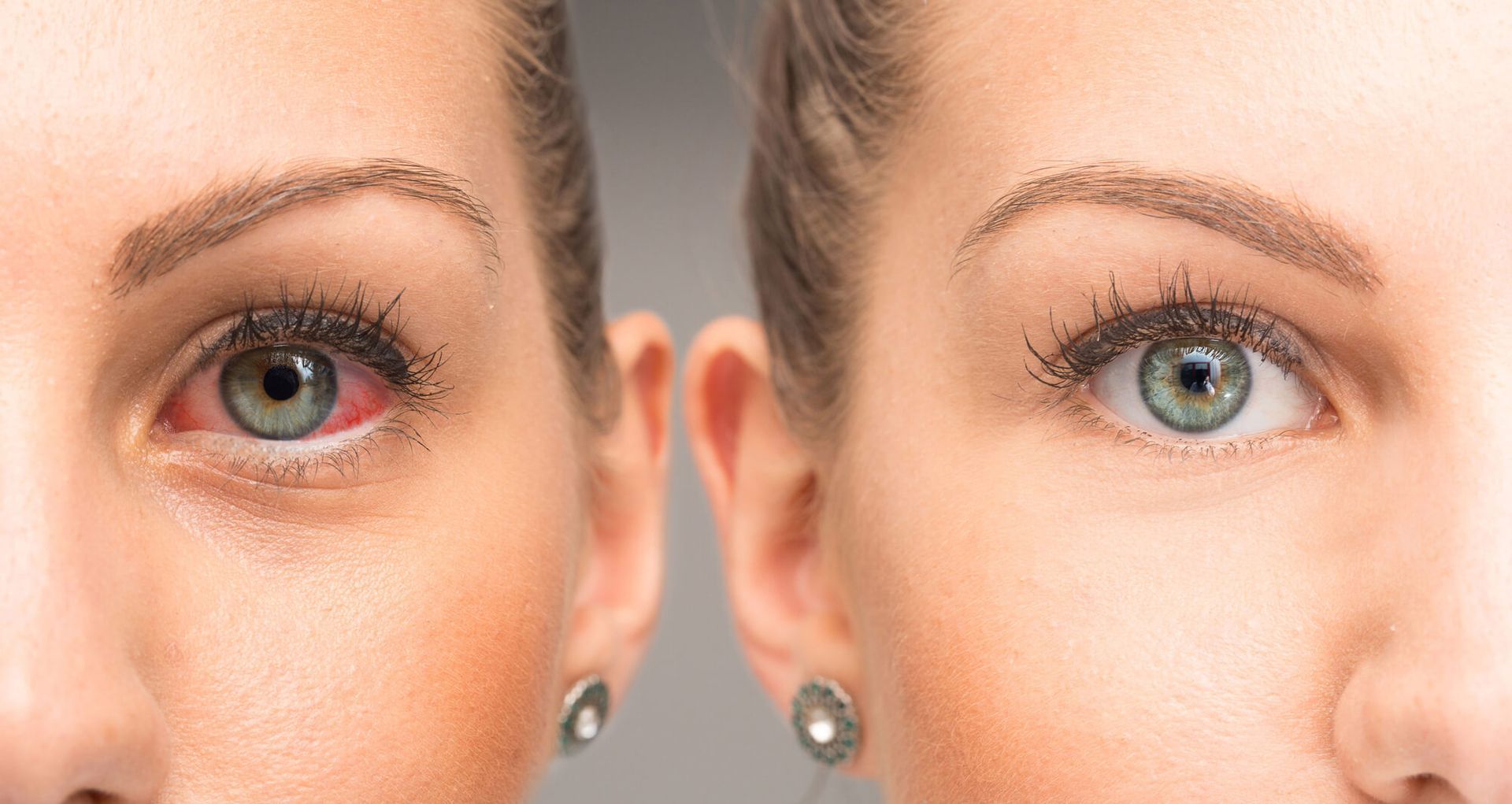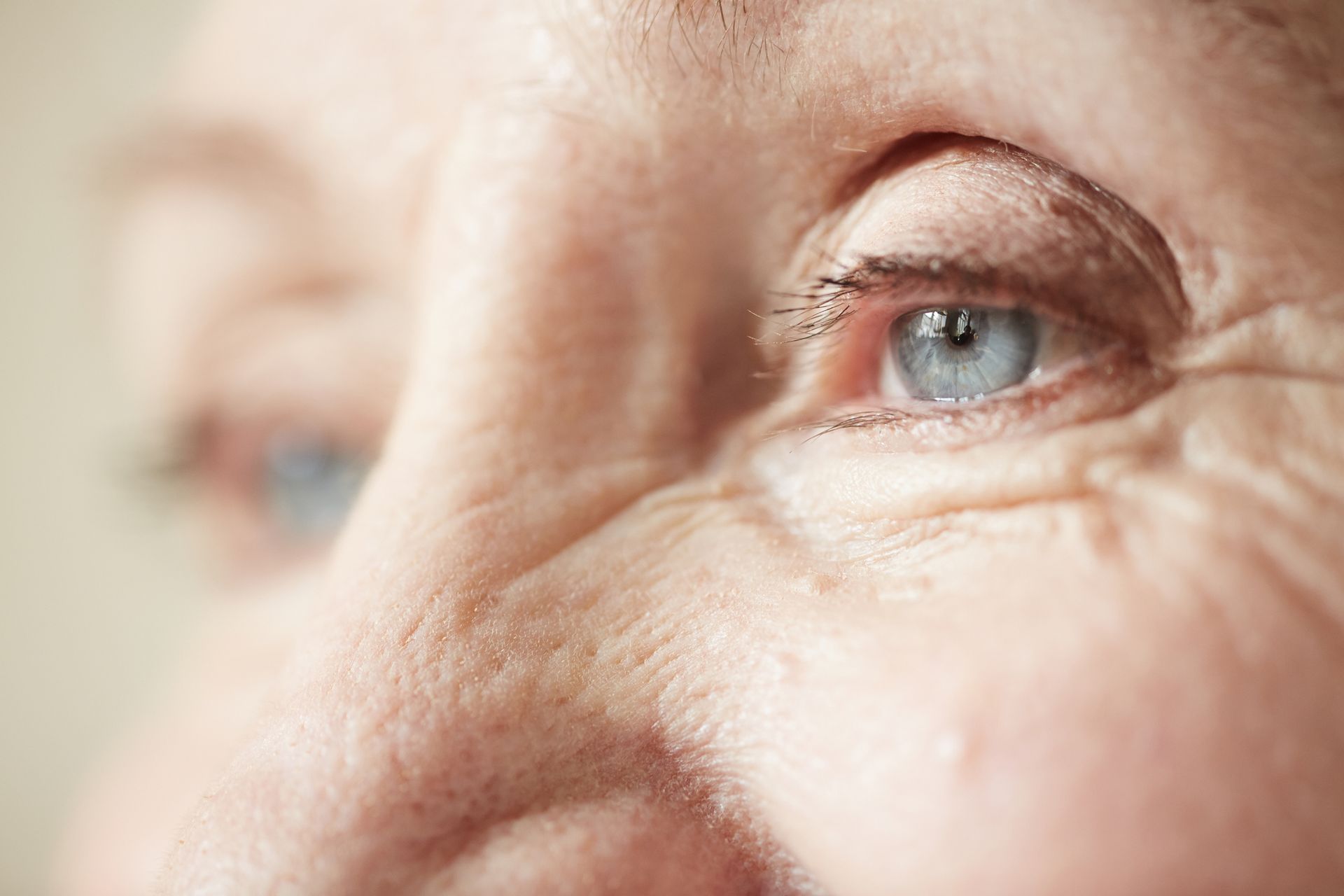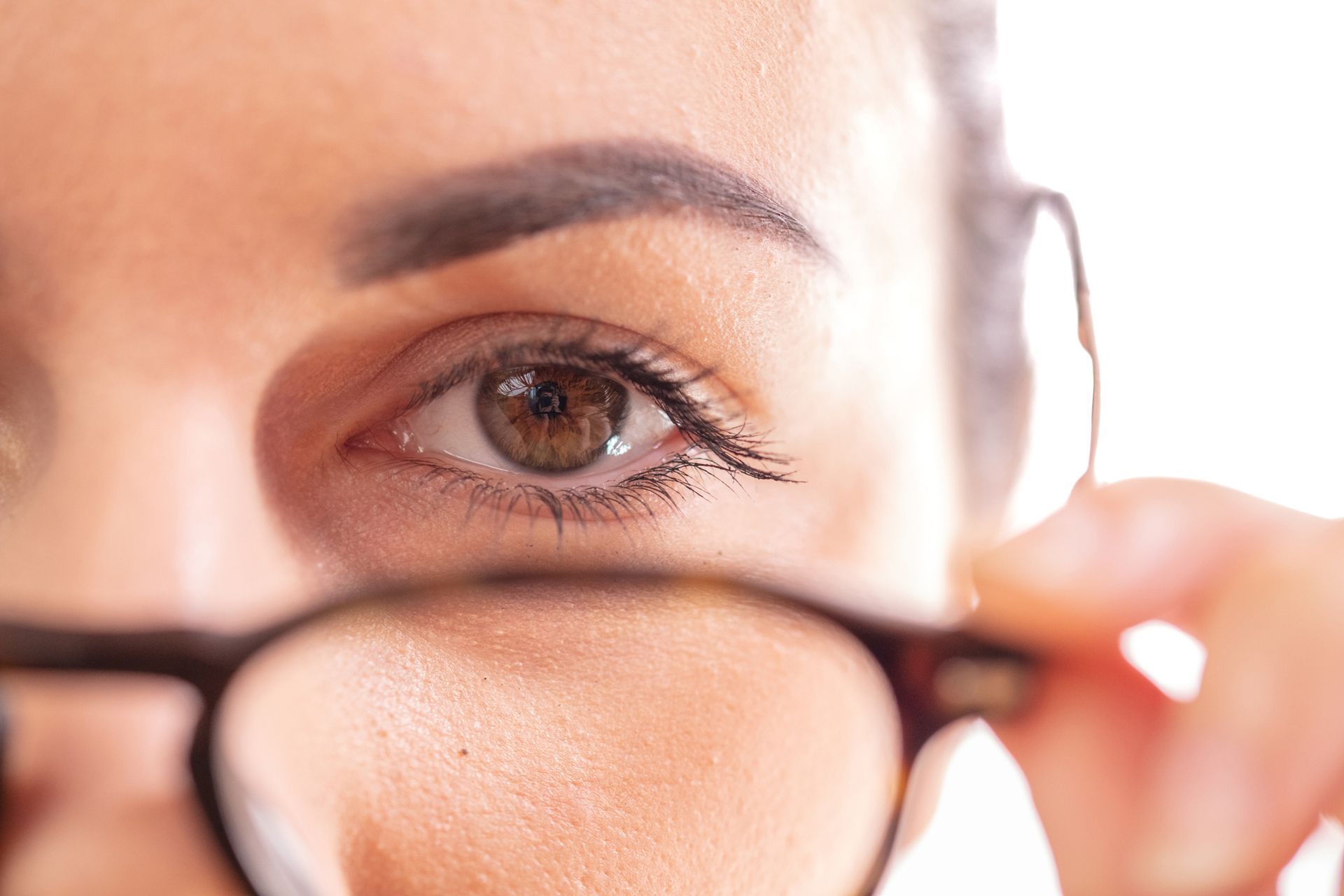Boost Your Eye Health: Essential Tips for Clearer Vision
Maintaining eye health is crucial for good vision. This article covers practical tips to prevent common eye problems, the importance of regular eye exams, and lifestyle choices to protect your eyesight.
Key Takeaways
- Regular eye exams are essential for early detection and management of common eye conditions, which can prevent significant vision loss.
- Maintaining eye health involves lifestyle choices such as a balanced diet, regular exercise, and protective measures against environmental hazards.
- Specialized eye care services, including digital eye exams and vision therapy, enhance patient care and address specific visual disorders effectively.
Understanding Common Eye Conditions
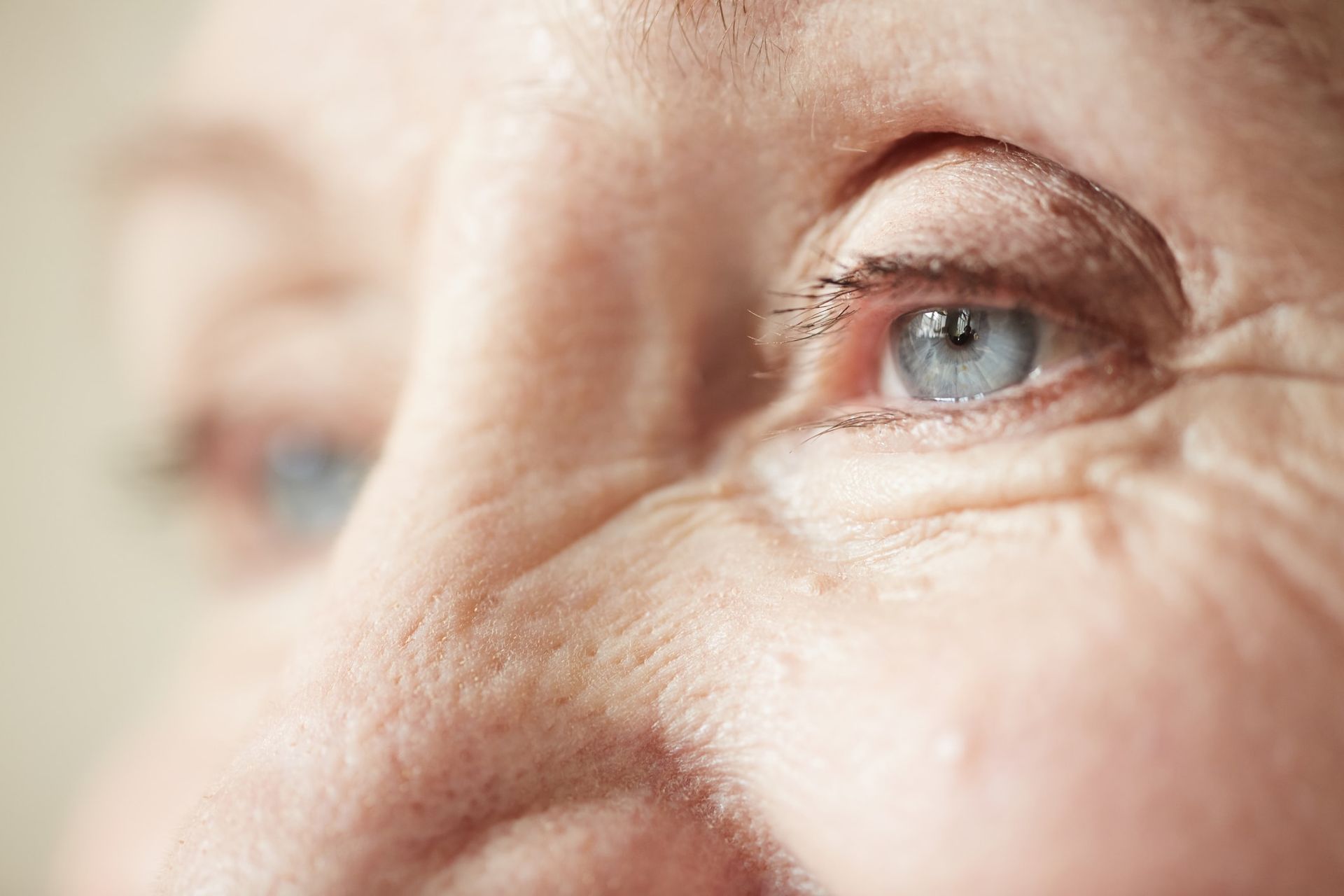
Many of us experience symptoms like blurry vision at some point, which can indicate underlying eye issues. Regular eye examinations can detect conditions that may lead to vision loss even before any symptoms appear. Common eye diseases such as diabetic retinopathy can be managed effectively with early detection.
Recognizing various common eye conditions is the first step towards maintaining good vision and overall eye health. Conditions such as refractive errors, age-related macular degeneration, and diabetic retinopathy are prevalent but manageable with the right knowledge and proactive care.
Refractive Errors
Refractive errors, including myopia (nearsightedness), hyperopia (farsightedness), and astigmatism, are among the most common eye conditions. These errors occur when the shape of the eye prevents light from focusing directly on the retina, leading to vision problems such as blurry vision and eye strain.
Corrective measures for refractive errors include eyeglasses, contact lenses, and surgical options like LASIK, which reshapes the cornea to improve vision clarity. Routine eye exams can identify these errors early, enabling timely intervention to improve vision and reduce reliance on corrective lenses.
Age Related Macular Degeneration
Age-related macular degeneration (AMD) primarily affects older adults and is a leading cause of vision loss. This condition deteriorates the central part of the retina, known as the macula, which is crucial for sharp central vision. Smoking significantly increases the risk of developing AMD and other eye diseases such as cataracts and optic nerve damage.
Routine eye exams are crucial for the early detection and management of AMD. Early intervention can slow the progression of the disease, helping to maintain vision quality and prevent severe vision loss.
Diabetic Retinopathy
Diabetic retinopathy is a complication of diabetes that can lead to vision loss if not managed properly. High blood sugar levels damage the blood vessels in the retina, causing them to swell, leak, or close off, leading to vision problems. Controlling diabetes and maintaining healthy blood sugar levels are key to preventing this condition.
Managing other chronic conditions like high blood pressure also reduces the risk of developing diabetic retinopathy. Comprehensive dilated eye exams are vital for detecting early signs of this condition and starting timely treatment.
The Importance of Regular Eye Exams
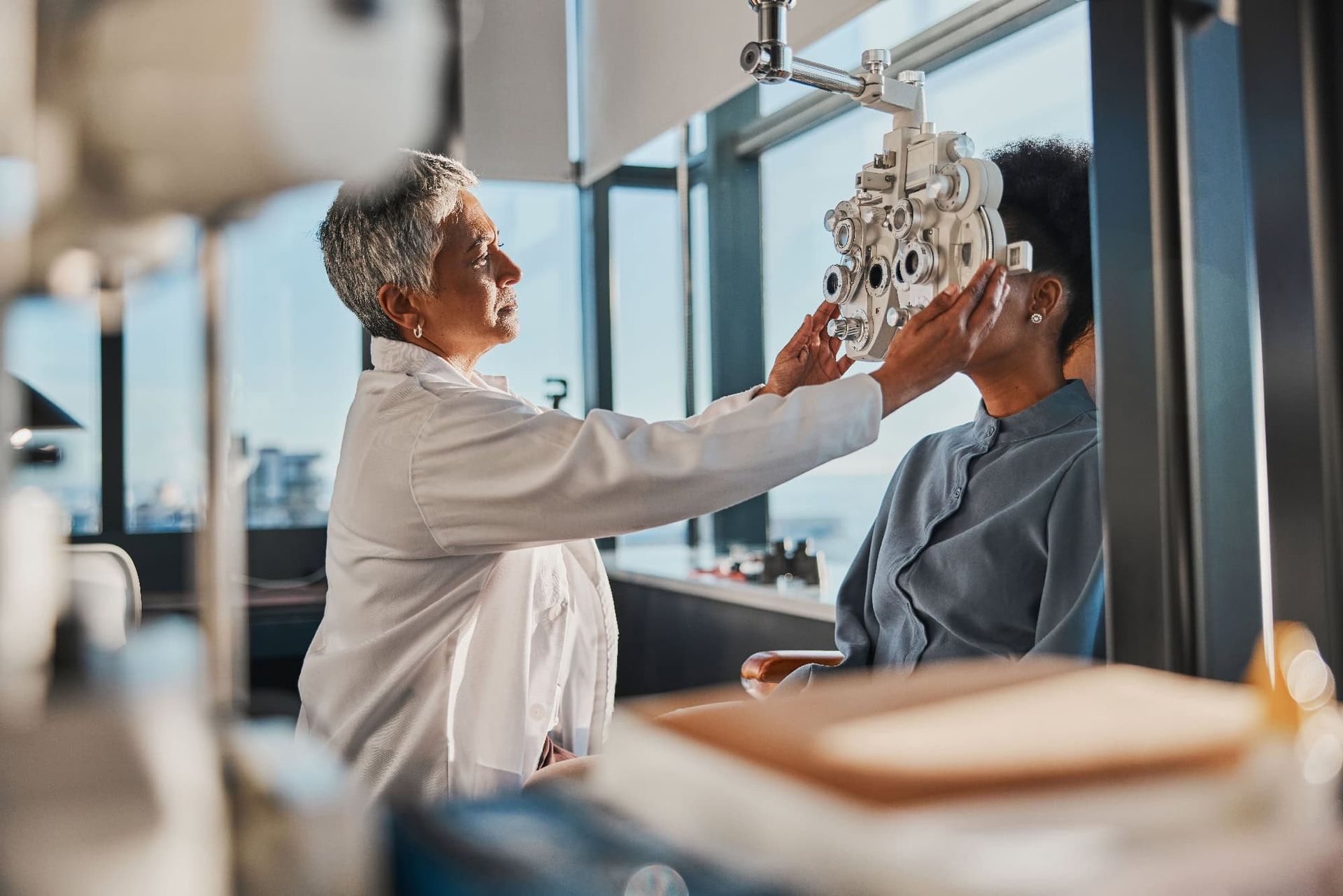
Routine eye exams are crucial for maintaining overall eye health and can detect eye diseases early, preventing significant vision loss. A comprehensive dilated eye exam can reveal underlying health conditions that might impact vision, such as diabetes and high blood pressure.
Older adults and those with risk factors like diabetes and high blood pressure are especially encouraged to have regular eye exams to maintain eye health. Early detection through these exams can result in better treatment outcomes and prevent severe vision problems.
Comprehensive Dilated Eye Exam
A comprehensive dilated eye exam involves widening the pupils using drops to allow a thorough examination of the eye’s interior. This procedure is crucial for detecting eye diseases such as diabetic retinopathy, which can lead to significant vision loss if left untreated.
The main benefit of this exam is early detection of serious eye conditions, enhancing the chances of successful treatment and preserving vision. Routine comprehensive eye exams are fundamental to proactive eye care, ensuring early detection and management of any issues.
Frequency of Eye Exams
Eye exam frequency varies based on age and risk factors. Children should have their first eye exam between ages 3 and 5 to check for common vision issues. Adults over 60, especially those with a family history of eye diseases, should have eye exams every two years.
Individuals with diabetes or high blood pressure should have at least one comprehensive eye exam annually, including dilation for thorough evaluation. Routine eye exams are crucial for maintaining eye health and preventing vision loss across all age groups.
Maintaining Eye Health Through Lifestyle Choices

Maintaining eye health involves more than regular eye exams; it requires smart lifestyle choices. A balanced diet rich in fruits, vegetables, and whole grains supports both eye and heart health. Engaging in regular physical activity contributes to overall health and can help lower the risks of conditions affecting vision.
Shielding your eyes from environmental hazards and adopting healthy habits can further improve eye health. Wearing sunglasses and following a nutritious diet are lifestyle choices that play a significant role in keeping your eyes healthy.
Healthy Foods for Eyes
Certain foods are particularly beneficial for eye health. Dark leafy greens like spinach, kale, and collard greens are rich in lutein and zeaxanthin, which protect the macula and central vision. Fish high in omega-3 fatty acids, such as salmon and tuna, support eye health by preventing dry eyes and inflammation.
Other foods like sweet potatoes, rich in vitamin A, and citrus fruits, high in vitamin C, are essential for maintaining good vision and eye health. Adding these healthy foods to your diet can help keep your eyes healthy and lower the risk of age-related vision changes.
Protect Your Eyes
Shielding your eyes from environmental hazards is crucial. Wearing sunglasses that block 99% to 100% of UVA and UVB rays shields your eyes from the sun’s harmful rays. Protection is necessary regardless of the weather, as UV rays can cause significant eye damage over time. It is essential to wear protective eyewear and wear sunglasses.
For frequent screen users, computer glasses can help reduce eye strain and protect vision. Moreover, wearing protective eyewear and safety glasses during activities like sports and home repairs can prevent eye injuries and keep your eyes safe.
Healthy Habits
Developing healthy habits is key to maintaining good vision. A healthy weight through diet and exercise can significantly lower the risk of developing vision-impairing conditions. Quitting smoking reduces the risk of developing eye diseases such as age-related macular degeneration and cataracts.
Regular physical activity, a balanced diet, and protecting your eyes from environmental hazards all contribute to a holistic approach to eye health. These healthy habits not only keep your eyes healthy but also contribute to your overall well-being.
Specialized Eye Care Services at Pro Optical
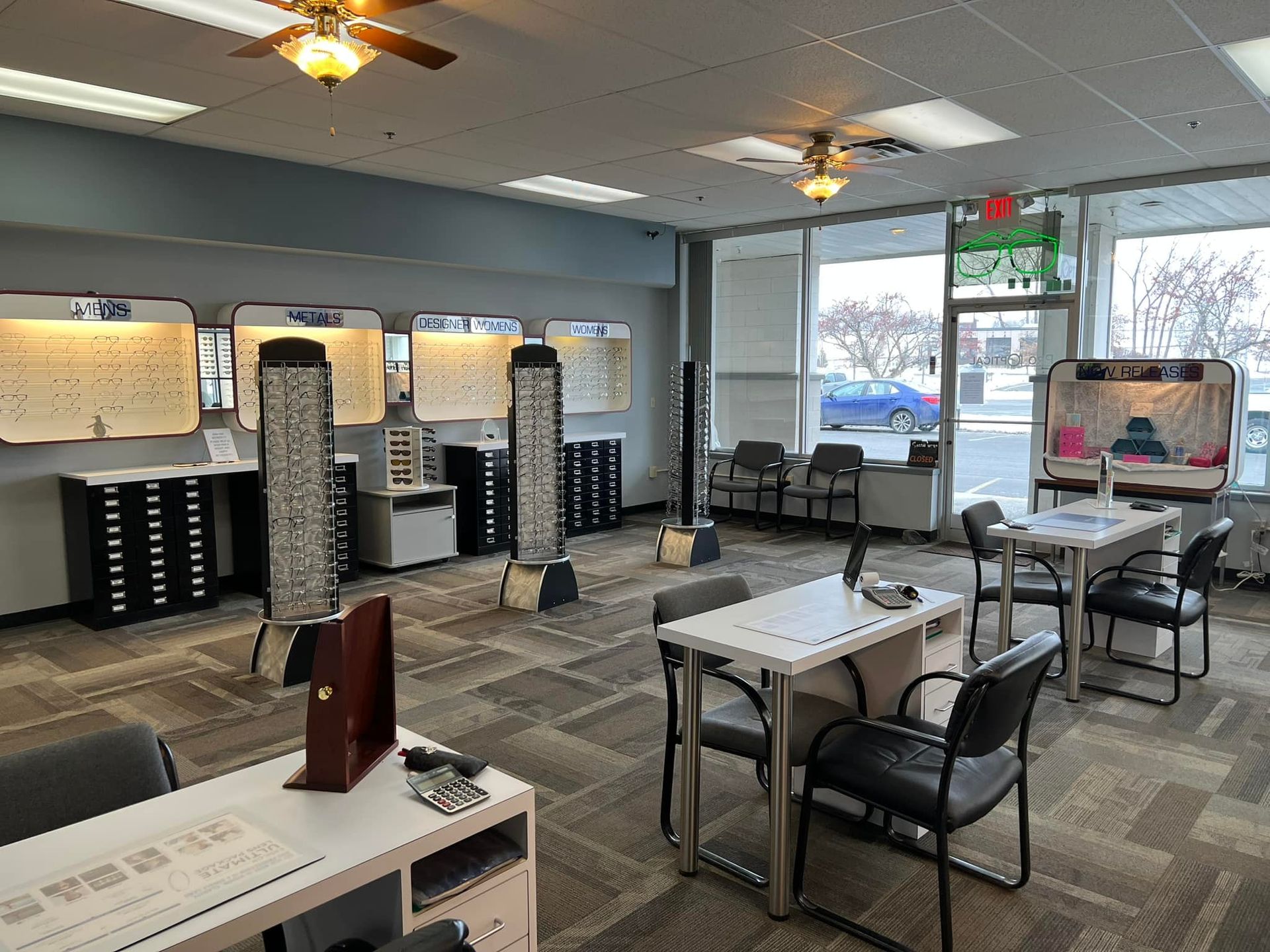
At Pro Optical, we offer a wide range of specialized eye care services to meet the diverse needs of our patients. Located at 200 South Main Street, West Lebanon, NH, our team provides clear, informative care in a professional yet approachable manner.
Our services include routine eye exams and specialized services like digital eye exams, sports vision training, and vision therapy. Whether you need eyeglass fitting, repairs, or frame selection assistance, Pro Optical is here to help.
Digital Eye Exams
Digital eye exams at Pro Optical use advanced diagnostic technology for more accurate assessments of eye health compared to traditional methods. This advanced imaging technology ensures precise evaluations, detecting any eye or vision problems early.
We provide comprehensive eye examinations, including specialized exams like back-to-school eye exams and DMV vision tests, using modern technology to enhance patient experience and treatment outcomes.
Sports Vision Training
For athletes looking to enhance their performance and protect their eyes, Pro Optical offers tailored sports vision training programs. These programs focus on improving visual skills, such as depth perception and hand-eye coordination, which are crucial for sports activities.
Our sports vision training helps athletes perform better and reduces the risk of eye injuries, ensuring safe and effective play. Enhanced visual skills help athletes achieve better performance and maintain healthy eyes.
Vision Therapy
Vision therapy at Pro Optical is a structured program designed to address specific visual disorders and enhance overall visual function. This therapy includes customized treatment plans with tailored exercises to meet individual patient needs.
Conditions like lazy eye and computer vision syndrome can be effectively managed through vision therapy, resulting in improved visual functions and better eye health. Our personalized strategies ensure that each patient receives the care they need to achieve optimal vision.
Treating Eye Conditions
Treating common eye conditions includes options ranging from corrective lenses to surgical procedures. Correcting refractive errors like myopia, hyperopia, and astigmatism can significantly enhance vision quality and reduce reliance on glasses or contact lenses.
Surgical treatments for cataracts and age-related vision changes offer significant improvements in vision clarity and quality of life. The appropriate treatment can prevent vision loss and ensure better vision for those affected by these conditions.
Corrective Lenses
Corrective lenses, such as eyeglasses and contact lenses, are primary tools for correcting refractive errors and enhancing vision clarity. Eyeglasses are designed to address specific vision impairments with prescriptions tailored to individual needs.
Contact lenses provide a versatile option for vision correction, offering freedom from glasses while effectively addressing various refractive issues. Routine eye exams ensure that corrective lenses are accurately prescribed and adjusted as needed.
Surgical Treatments
Surgical treatments like LASIK and cataract surgery offer long-term solutions for various eye conditions. LASIK surgery reshapes the cornea to improve vision clarity and reduce reliance on corrective lenses. Cataract surgery involves replacing a cloudy lens with an artificial one, significantly improving vision quality and reducing blurriness.
Early surgical intervention can prevent severe vision loss and enhance the quality of life for those affected by vision problems. Consulting an eye doctor will help determine the best surgical treatment for your specific needs.
Summary
Maintaining eye health is a multifaceted approach involving understanding common eye conditions, adhering to regular eye exams, making healthy lifestyle choices, and utilizing specialized eye care services. By identifying and managing conditions such as refractive errors, age-related macular degeneration, and diabetic retinopathy early, you can significantly reduce the risk of vision loss and maintain clearer vision.
At Pro Optical, we are committed to providing comprehensive eye care services, including digital eye exams, sports vision training, and vision therapy, to help you achieve and maintain optimal eye health. Remember that proactive eye care and making informed lifestyle choices are crucial steps towards protecting your vision and ensuring a future of good eye health.
Frequently Asked Questions
Where is Pro Optical located?
Pro Optical is located at 200 South Main Street, West Lebanon, NH 03784.
What are the hours of operation for Pro Optical?
Pro Optical operates Monday through Friday from 8:30 am to 5:30 pm, and on Saturday from 10 am to 2 pm.
Do I need an appointment for all services at Pro Optical?
You only need an appointment for eye exams at Pro Optical; all other services are available on a walk-in basis.
What type of eye exams does Pro Optical offer?
Pro Optical offers a variety of eye exams, including digital eye exams, comprehensive examinations, and specialized tests such as back-to-school eye exams and DMV vision tests.
What specialized services does Pro Optical provide?
Pro Optical offers specialized services including eyeglass fitting, repairs, frame selection assistance, sports vision training, and vision therapy, alongside routine eye exams. This comprehensive approach ensures that clients receive tailored care for their specific vision needs.
All Rights Reserved | Pro Optical


